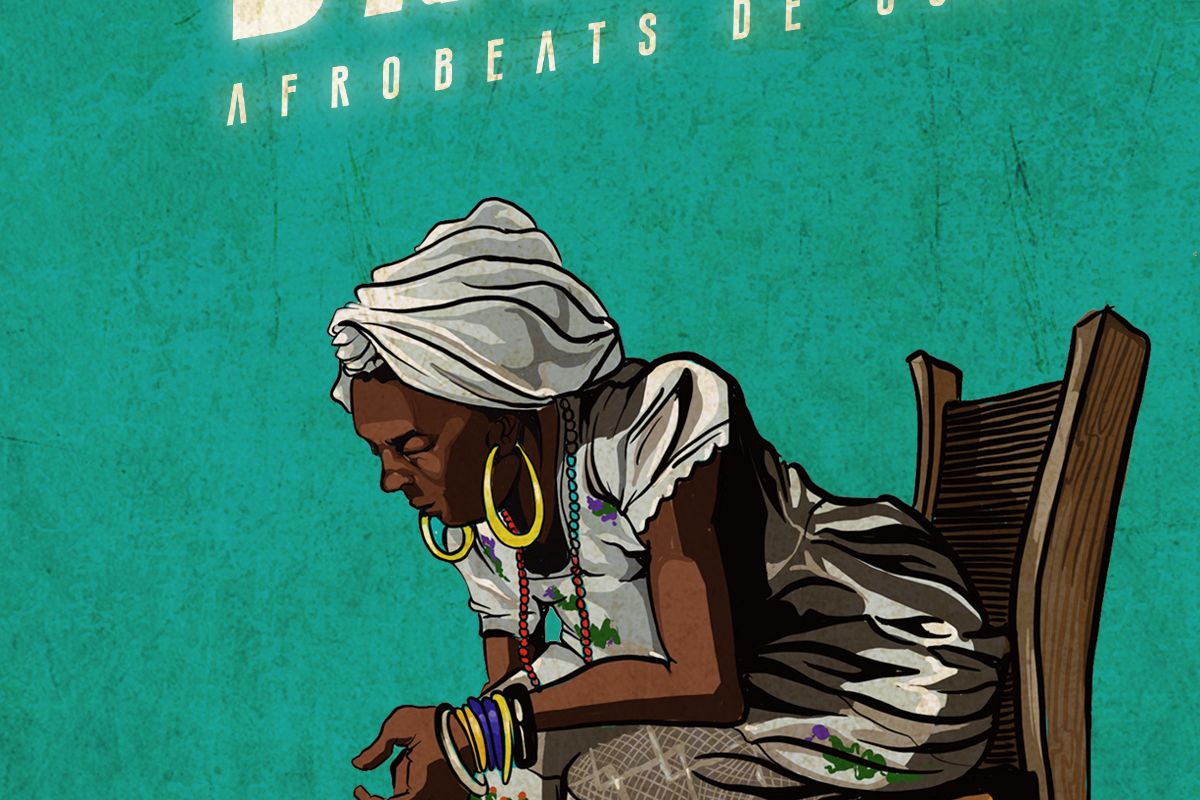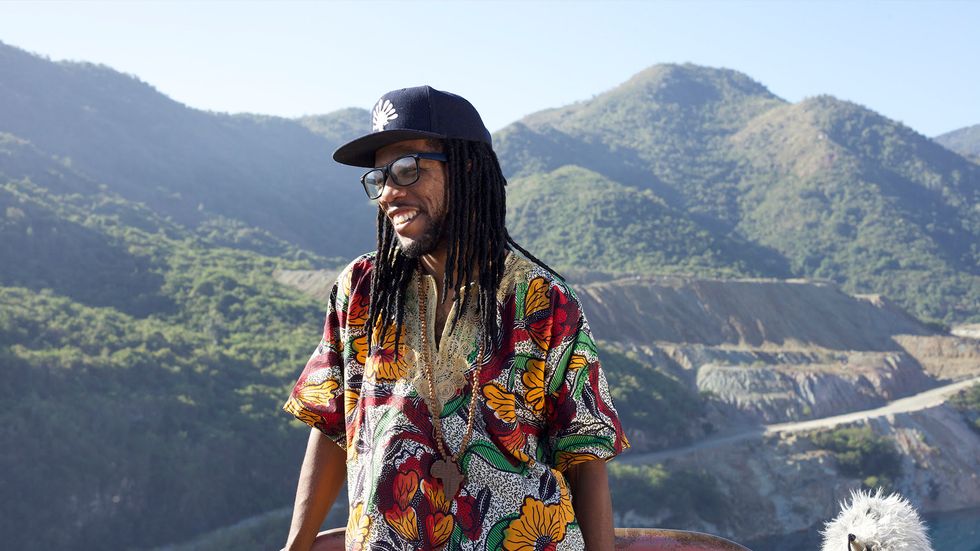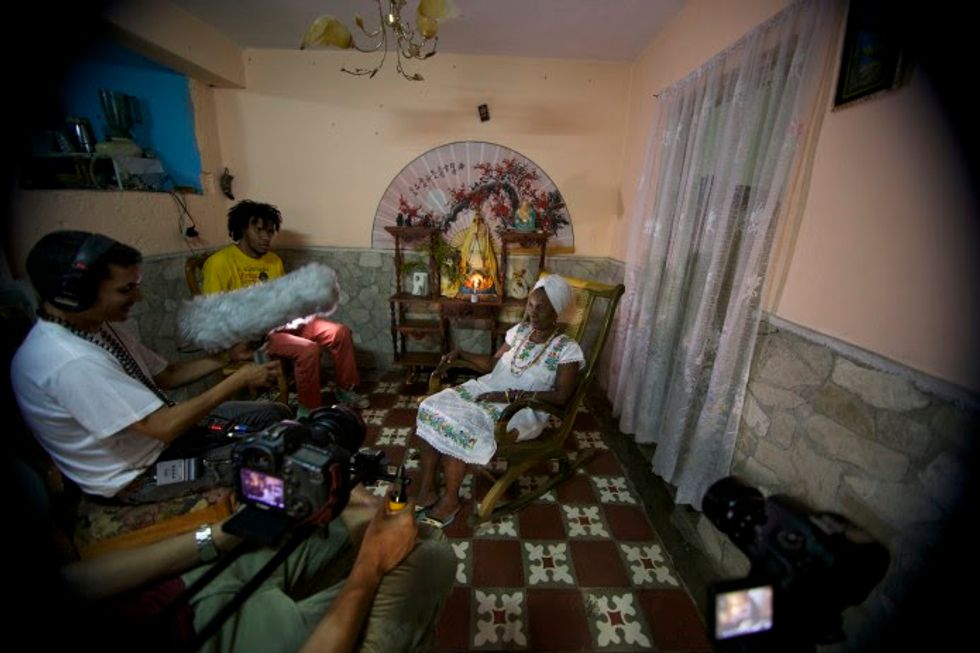Documenting Cuba's Afrobeats: A Movement in the Making
A new film showcases the music and dance of bakosó, a burgeoning movement inspired by the arrival of African medical students to Cuba's second largest city from the mid-2000s onwards.

Bakosó: Afrobeats de Cuba, a new independent documentary from director Eli Jacobs-Fantauzzi, had its world premiere this week in Los Angeles at the Pan African Film & Arts Festival. The film showcases a burgeoning music and dance movement known as bakosó. Firmly rooted in Santiago de Cuba, where the film takes place, bakosó fuses contemporary African influences with Cuban culture and musical tradition.
Not to be confused with Afrobeat, Cuba's afrobeats are part of a global trend and the result of a unique cultural exchange captured in the film that involves medical students from African countries introducing Afropop, kuduro, semba, as well as an array of West African rhythms to artists in Santiago de Cuba, the island's second largest city.
Director Jacobs-Fantauzzi had been in Cuba years earlier when producer and DJ Isnay Rodríguez, better known as DJ Jigüe, noticed the connection between the emergence of bakosó in Santiago and the musical movement known as hiplife that had been the focus of Jacobs-Fantauzzi's second film, Homegrown: Hiplife in Ghana, which chronicles a group of musicians over the course of a decade.
Hiplife, which Jacobs-Fantauzzi describes as the precursor to the global phenomenon of afrobeats, with the former being absorbed into the latter, fuses a broad range of musical styles that have been appropriated by everyone from mainstream artists like Drake to fusion genres in other Latin American countries like Colombia, the Dominican Republic, and so on. Though not as widely known, bakosó is another evolution in this diasporic trend. "This is the latest version—direct from the continent, contemporary Africa," says Jacobs-Fantauzzi.
Enter DJ Jigüe, a Santiago native now based in Havana. He proposed returning to his hometown to document the movement behind bakosó. Bakosó: Afrobeats de Cuba is the story of this journey as it relates to his experiences traveling outside the capital, to where musical trends often develop before making their way to Havana. "The idea of this film was to go back to Santiago de Cuba to uplift those stories out of the provinces—to go to La Maya, Las Palmas, these smaller communities where they birth [music] genres that have traveled the world," says Jacobs-Fantauzzi.

Since the mid-2000s, when Cuba incorporated a second campus in Santiago for its world-renowned medical school program, African students have arrived en masse to the city. There, they adapt to a culture that is both alien and familiar all at once. The familiar, however, is what encourages them to share the music and dance of their home countries. "I always thought about how much Cuba gives them in terms of opportunity and it was really great to see what they offer, their culture and their music," says Jacobs-Fantauzzi.
This is evident in the music video for the film's title track, "Bakoso," premiering exclusively on OkayAfrica (above). Directed by Reinier Charon of El Templo Producciones, the video incorporates visuals from the documentary, including recording sessions led by DJ Jigüe with a local drum troupe and the two artists featured on the track: Oskaro Delgado and Kamerun. These scenes from the film speak to relationships that Jacobs-Fantauzzi cultivated years earlier with the Cuban hip-hop community, during the filming of his first documentary, Inventos: Hip-Hop Cubano, which was released in the mid-2000s. "I'm not the type of filmmaker or storyteller to mine stories and then profit from them; I'm the kind of storyteller that's committed to the community, that grows with the community," says Jacobs-Fantauzzi.

Like the film, the music video offers a glimpse into the community that has formed around bakosó. "The idea behind the concept of the video: see the streets of Cuba, see the people dancing, and feel the energy," says Jacobs Fantauzzi. To that end, panoramic drone shots of the city and extended dance sequences help to convey a sense of what bakosó means for santiagueros, young and old.
In terms of next steps, Jacobs-Fantauzzi tells OkayAfrica that the film will continue on the festival circuit before seeking a distribution deal. Ideally, the film would also be able to provide material support for the bakosó community. Such was the case the release of his first documentary, Inventos, which led to the purchase of musical equipment and a music tour. "That maybe we could open a studio, organize trips back to Santiago and have a cultural center that promotes this music, that people could visit and become a part of—that's my dream," says Jacob-Fantauzzi. A bakosó dance challenge inspired by the music video is also in the works, with the full soundtrack of songs heard in the film forthcoming.
- 'Watch the Trailer for Upcoming Documentary 'Afrobeats: The Backstory' - OkayAfrica ›
- Meet Duro Arts, the Man Behind Your Favorite Afrobeats Album Covers - OkayAfrica ›
- Op-Ed: Afrobeats Songwriters Aren't Valued Enough - Okayplayer ›
- Watch Yilian Canizares & Paul Beaubrun's Beautiful Video For 'Noyé' - Okayplayer ›

